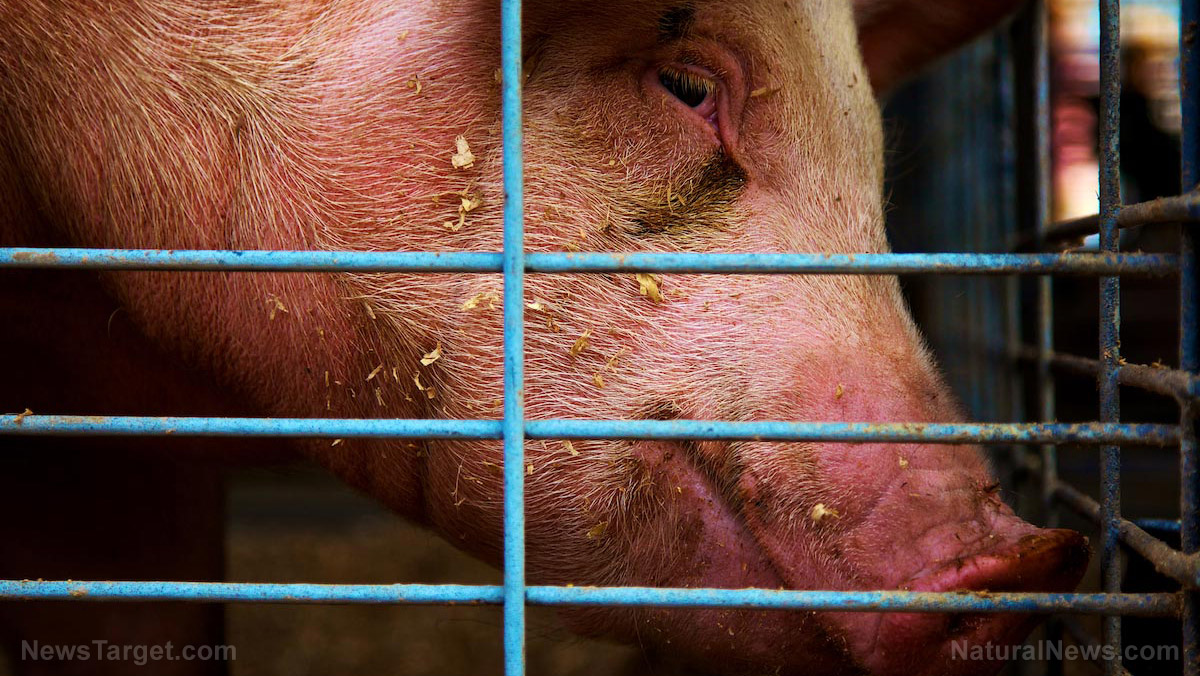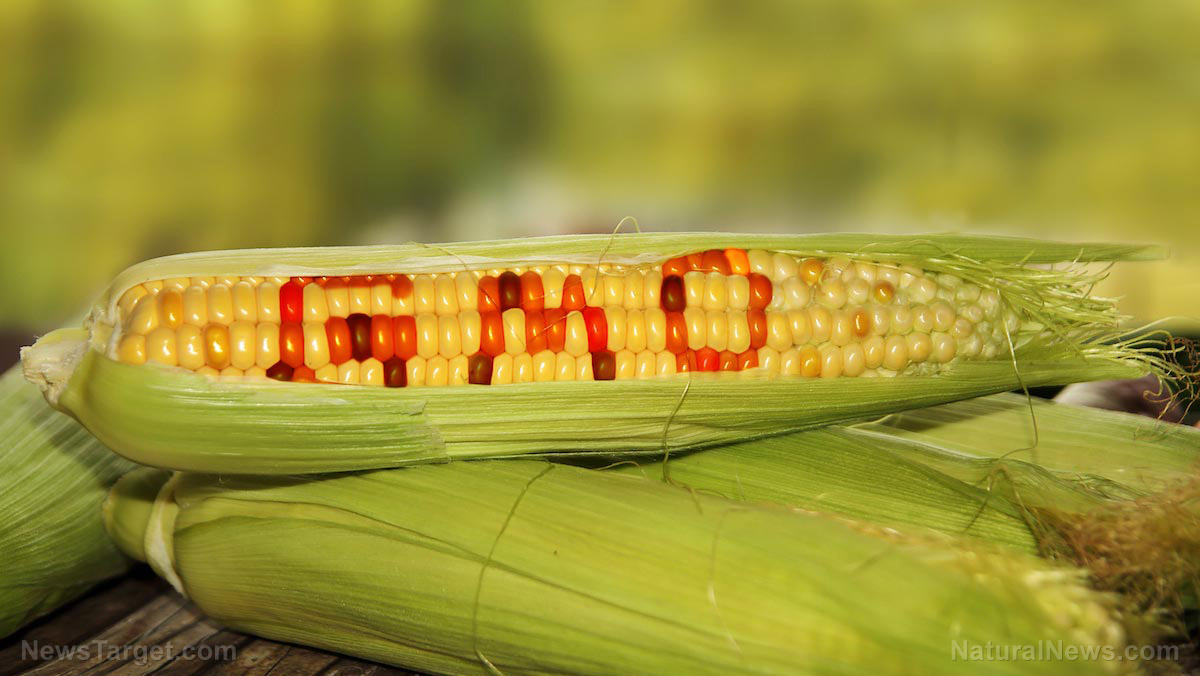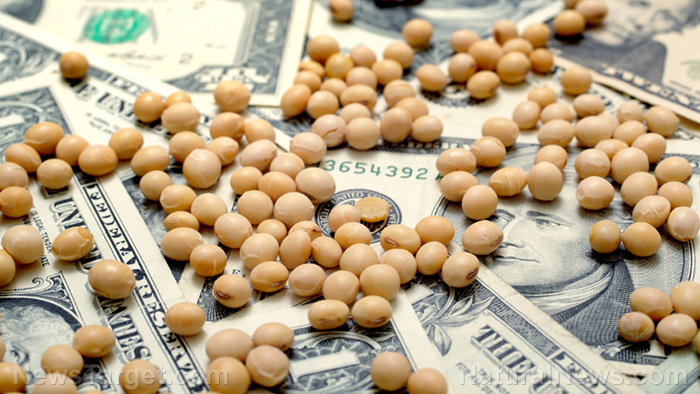Farmers try to sue over genetic pollution from GMOs as Monsanto’s discredit bureau attempts to deflect blame
01/27/2016 / By Julie Wilson

Nearly a year has passed since the world’s largest seed giant was forced to pay $2.4 million in restitution to farmers in seven states, following the discovery of Monsanto’s Roundup Ready wheat growing in Oregon. Because the U.S. Food and Drug Administration had not approved GE wheat, the finding sent shock waves through the industry, inciting panic among consumers, as well as international buyers including Japan, South Korea and Taiwan.
The three countries promptly suspended some of their wheat orders, while the European Union called for more rigorous testing of U.S. wheat exports. In the 1990s, Monsanto managed test trials of GM wheat in Montana, but terminated the project after the crop was rejected by the industry and consumers.
Though GM wheat testing supposedly ended in 2003, it was found still growing more than a decade later. The experimental crop was found thriving in Montana near Monsanto’s research field just one year after it was found growing in Oregon.
It was the Oregon discovery, however, that affected wheat farmers the most as the crop was discovered growing on commercial farmland. An eastern Oregon farmer noticed the GM wheat when he sprayed his field with Roundup and observed most of the vegetation dying off, except for “clumps of green wheat stalk” that “kept growing,” reported NPR, “they apparently had sprouted from grain that was leftover in the field from last year’s crop.”(1)
The farmer’s suspicions were confirmed after he sent a sample of the wheat to Carol Mallory-Smith, a weed scientist at Oregon State University. Though skeptical about the prospect of it being GM wheat, namely since Monsanto’s test trials ended 12 years earlier, Smith agreed to test the sample. She was extremely surprised when the results came back positive. She notified the U.S. Department of Agriculture about her discovery, which subsequently launched an investigation.
“If rogue genes are present in America’s wheat harvest, some customers — especially in Japan and Korea — say they won’t take it,” NPR wrote in 2013.
Though Monsanto admitted it had no idea how the GM wheat made onto Oregon farmland, it couldn’t resist using the opportunity to bash GMO skeptics, blaming them for the mishap rather than taking responsibility for the displacement of its unapproved crop.
“The fact pattern indicates the strong possibility that someone intentionally introduced wheat seed containing the CP4 event into his field, sometime after that farmer initially planted it,” said Monsanto’s chief technology officer, Robert Fraley.
Pointing to a possible motive, “there are folks who don’t like biotechnology and would use this as an opportunity to create problems,” said Fraley, speculating that anti-GMO activists may have stolen wheat from Monsanto before purposely planting it in Oregon.
The suggestion was of course ridiculous and completely unsupported, having no facts to back it up.
The debacle led to a string of lawsuits against Monsanto, eventually resulting in it paying $350,000 to farmers affected by the unapproved wheat. The seed giant agreed to donate $50,000 to agricultural schools at land grant colleges in Kansas, Missouri, Illinois, Oklahoma, Texas, Louisiana and Mississippi.
A portion of the restitution will serve as reimbursements for plaintiffs’ legal fees, reports NBC News. A separate lawsuit brought against the biotech giant by Arkansas wheat growers remains unresolved.(2)
No stranger to lawsuits, Monsanto has found itself embroiled in many over the years as it continues to pollute the planet with its destructive pesticides and GM crops, harming humans, animals and the environment.
Attempting to escape its bad rap, last summer Monsanto toyed with the idea of changing its name during discussions about a possible merger with Swiss biotech rival Syngenta. Monsanto proposed “creating a new company entirely,” hoping to escape persecution for its crimes, reported wearechange.org.(3)
“Monsanto wants to escape its ugly history by ditching its name. This shows how desperate Monsanto is to escape criticism: of its products, which raise environmental and health concerns, as well as concerns about corporate control of agriculture and our food system,” said Gary Ruskin, Co-Director of U.S. Right to Know.
Thankfully, the merge never happened.
To donate to a cause that could hold Monsanto accountable for its crimes against humanity, click here. Learn more about the effort in the video below.
Marie-Monique Tribunal (English) from Monsanto Tribunal on Video.
Sources:
(1) NPR.org
(2) NBCNews.com
(3) WeAreChange.org
(4) Bloomberg.com
(5) NaturalNews.com


















